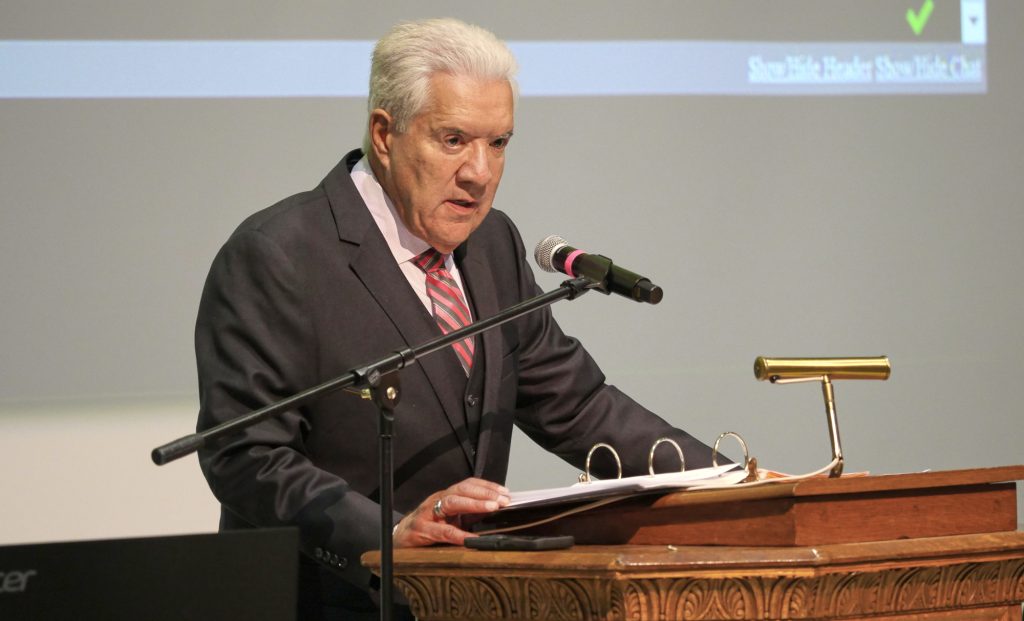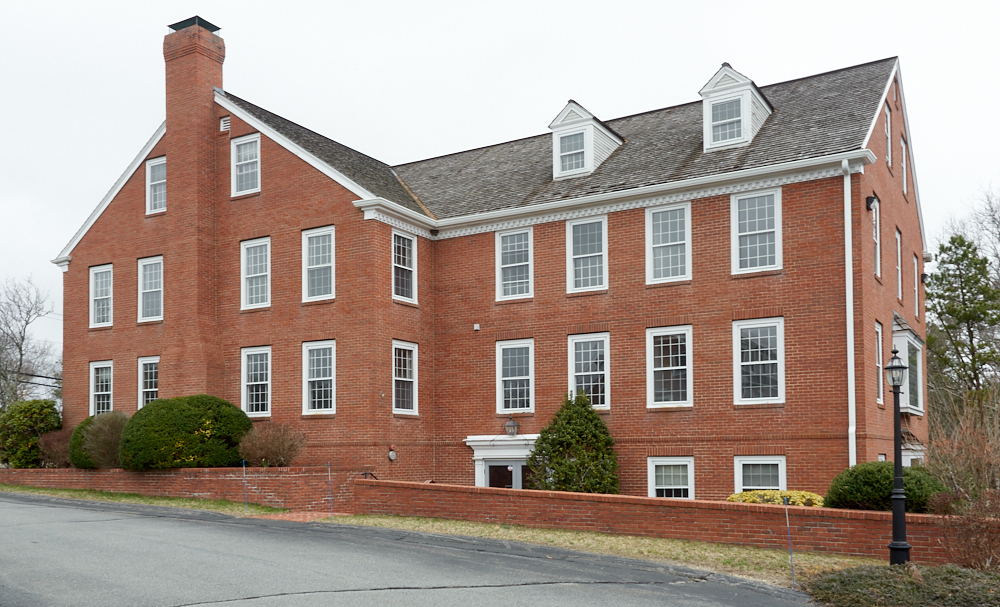After a 90-minute debate, Town Meeting members Monday night overwhelmingly approved partially funding a homeless shelter that’s planned for Plymouth Industrial Park.
The measure – which passed by a 98 to 36 margin, with three abstentions – culminated months of discussion over whether Plymouth should use $3 million in Community Preservation money toward the $7 million Plymouth Area Coalition for the Homeless facility at 54 Industrial Park Road, which will offer temporary housing for up to 26 families.
The decision came during the second session of Town Meeting after members suspended Saturday’s session nine hours into discussions. Monday’s meeting took another three hours to finish tackling the final items on the 21-article agenda. Half of that time was spent on the shelter issue.
The Advisory & Finance Committee voted 8-6 in January to recommend against using Community Preservation funds for the shelter. At that time, two members of the committee resigned in protest over what they said was the charged tone of questions about whether homeless families would come from outside the U.S. and bring crime to town.
Although the measure eventually easily passed Monday night, opponents were vocal in their criticism of the funding measure.
Precinct 3 Town Member Laurence Pizer said that since the Massachusetts Executive Office of Housing and Livable Communities, and not the town, would choose who lives in the shelter, the state should foot the entire bill.
“If the state is going to set the rules and choose the occupants, the state pays for the shelter,” Pizer said. “There should be a shelter. It’s not Plymouth’s obligation to pay for it.”
But other Town Meeting members pushed back against the notion that Plymouth would have no control over who is housed at the shelter.
“I really don’t think that argument holds any weight,” said precinct 1’s Mark Pulsinelli. “Look at the Spire Center. We provided them with millions of dollars to do renovations. Everybody attending a show at the Spire Center is not a Plymouth resident. I think this is a wonderful opportunity to provide needed shelter for families in the area.”
“It’s true that there will be no guarantee that Plymouth residents will get to be in this program,” but if we don’t do it, [it] is a guarantee that they certainly won’t be,” said John Hammond, a member from precinct 18.

Several people raised concerns about having to pay to educate and transport homeless children from other towns to schools.
But School Committee Chair Michelle Badger said 69 homeless students already attend Plymouth Public Schools and don’t require extra spending to transport them to and from school. The town provides transportation for another 20 homeless students who attend Plymouth schools but come from other communities, Badger said. And 36 additional homeless students from other towns are brought to and from Plymouth schools at those towns’ expense, she said.
“The only thing I needed to hear is we have 125 homeless children, and we really should take that into consideration,” Betty Cavacco, a member of the Community Preservation Committee and a Town Meeting member from precinct 6, said in support of the shelter.
Opponents also raised the possibility of the shelter causing problems, though they did not offer many specifics.
“All we have to do is look at Kingston, and there’s a lot of trouble there,” said precinct 15’s Wrestling Brewster, alluding to two shelters in Kingston. The Coalition runs a 13-family shelter called Pilgrim’s Hope and provides educational services at the Baymont by Wyndam Motel off Route 3, which is run by the state.
Sue Giovanetti, the Coalition’s executive director, had previously explained that the unusually high number of emergency responses at Pilgrim’s Hope was due to parents lacking transportation for their sick children as well as smoke from kitchen stoves setting off alarms before vents were upgraded.
In his presentation against the $3 million appropriation, Advisory & Finance Chair Steve Nearman said that Giovanetti is a member of the Plymouth Independent board and implied that it had given the issue “outsize coverage” because of her affiliation, “which may then be perceived as biased.”
Plymouth Independent Editor Mark Pothier said Tuesday that Giovanetti and other board members do not make any decisions about news coverage.
Town Meeting on Monday supported every other article to come up after the shelter funding vote.
By a vote of 102-34, with one abstention, members supported spending $960,000 in Community Preservation funds to subsidize the construction of six affordable housing units at 132-134 Court Street. Total cost of the 34-unit project, helmed by developer Rick Vayo, is estimated at $4.5 million.
A once controversial proposal to use $4 million in Community Preservation funds to subsidize affordable housing units at Cranberry Commons at Redbrook passed by a vote of 104-31, with one abstention. Opposition to the plan subsided after Redbrook made changes to the project to increase the number of affordable housing from 52 units to 62, to offer more parking, and to reorient the building’s siting in response to neighbors’ concerns. In all, the project is expected to cost $30 million, with the balance coming from the state and private sources.
Town Meeting also supported spending $3 million in Community Preservation funds to improve trails around Jenny Pond and Town Brook, some of which are badly eroded.
It also passed new zoning regulations to allow multifamily housing to comply with the state’s MBTA Communities law.
Fred Thys can be reached at fred@plymouthindependent.org

